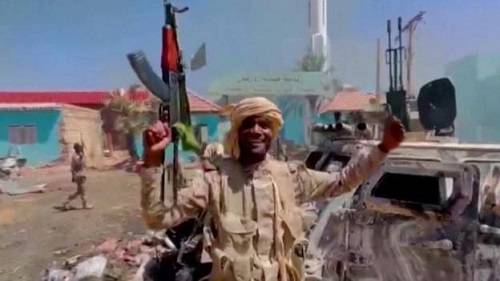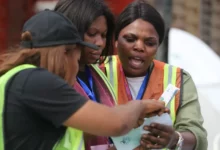
The latest temporary ceasefire between Sudan’s rival military factions appears to have brought a lull in the fighting, following battles and air strikes overnight.
A resident in the capital, Khartoum, said the situation was calm and expressed hope that the truce might be the beginning of the end of the war.
He said people were tired of conflict, death and looting. The 72-hour ceasefire was announced on Saturday by US and Saudi mediators.
The Sudanese army and the paramilitary Rapid Support Forces (RSF) agreed to halt attacks and allow the delivery of humanitarian aid.
Previous truces have been poorly observed. With the Sudanese capital, Khartoum, transformed from tranquil city to war zone, Saudi Arabia and the US have called the warring parties to Jeddah to seek agreement on a ceasefire.
There is a dilemma for mediators: whatever decision they take on the format and agenda for emergency talks will determine the path of peace-making in Sudan through to its conclusion.
To silence the guns, the American and Saudi diplomats will deal only with the rival generals who have each sent a three-person negotiating team to Jeddah.
The agenda is a humanitarian ceasefire, a monitoring mechanism and corridors for aid. Neither side wants to open negotiations towards a political agreement.
The civilian parties and neighbourhood resistance committees, whose non-violent protests brought down the authoritarian regime of long-time leader, Omar al-Bashir, four years ago, will be onlookers.
It will not be easy to get the two generals to agree to any kind of ceasefire.
The army chief, General Abdel Fattah al-Burhan, will insist that he represents the legitimate government. He will label Gen Mohamed Hamdan Dagalo, better known as “Hemedti”, as a rebel.
But Hemedti, his de facto deputy until the clashes, will demand equal status for the two sides.
He will want a freeze-in-place, leaving his paramilitary RSF fighters in control of much of Khartoum. Gen Burhan will require a return to the positions in the days before the clashes began. Getting a compromise means hard bargaining with the generals. —BBC





